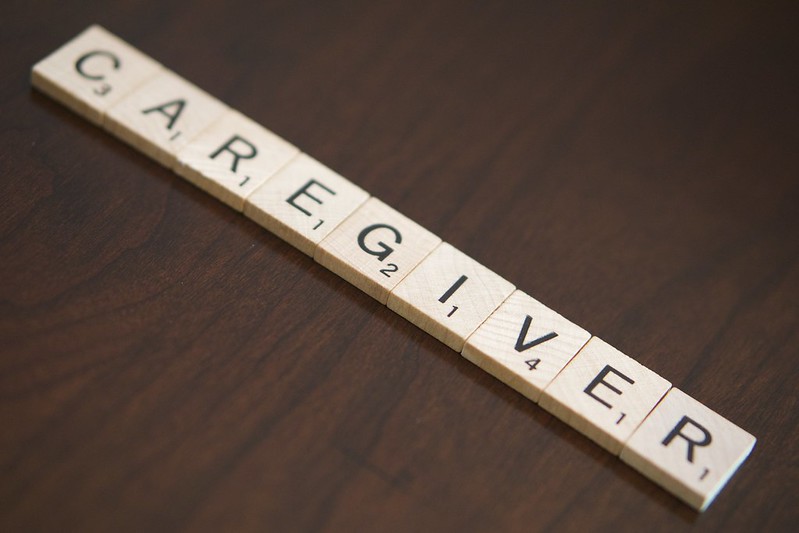|
More than 10% of caregivers look after a family member or friend from a distance. Not being nearby can make the task much more difficult and expensive. According to the latest AARP study, three-quarters of the family caregivers surveyed reported spending an average of $7,242 annually on out-of-pocket costs related to caregiving,. Long-distance caregivers often spend quite a bit more since long-distance caregivers are more likely than local caregivers to hire help, take unpaid time off work and pay for travel expenses.
The following tips can help make long-distance caregiving easier and more effective. Build a Team If you can’t physically check in on your loved one regularly, get help from others who can. This could be other family members or friends who live nearby, or even a friendly neighbor. Enlisting other family members can help lighten the load. They can pitch in to make daily check-in calls or handle tasks such as paying bills, making medical appointments and picking up groceries. If you have the resources, consider hiring a Certified Senior Advisor to help you evaluate your loved one’s care needs or hire home care aides if necessary. A certified Senior Advisor will have extensive experience in the senior care industry. An initial consultation up to one hour is typically free of charge, but then the advisor can be enlisted as necessary on an hourly basis. For instance, if there is an emergency and you need a trusted advisor to make a hospital visit, they can step in and keep you up to date. In home care aides can be in the home 24/7 which is nice for peace of mind but with hourly fees ranging from $30-50 per hour in can become expensive very quickly. Utilize Technology Devices like an iPhone or an Alexa can make video calls easy but those aren’t the only tools that can make help long-distance caregivers. Medical alert systems can allow a loved one to summon aid, and some have fall detection technology that will alert emergency responders even if your loved one is unable to communicate that they need help. Smart medication dispensers manage medications and let caregivers know if doses aren’t taken. Smart home systems can also help. A smart door lock, for example, can allow you to grant access to someone such as a friend or a health aide. Smart light bulb can allow your loved one to turn lights on or off with just the sound of their voice and a smart thermostat can help you ensure a comfortable temperature. Research Available Resources Your loved one may be eligible for public benefits that could help with caregiving tasks or costs. Start your search at Benefits.gov. Veterans often have many resources available to them, but the system can be difficult to navigate. Elder Veterans Legal Aid Group is and excellent resource to help guide you in the right direction. Be sure to ask about other resources, such as long-term care insurance. In the event that assisted living is necessary you may need to look at utilizing savings or home equity. Talking about money can be difficult, but the sooner you have the conversation the easier it will be to navigate a crisis should one arise. An Elder Law Attorney or a Certified Senior Advisor can be instrumental in guiding these conversations. This estate planning workbook can be helpful when planning for care, finances and end of life if arrangements have not already been made. Having a plan in writing can provide a lot of peace of mind. Comments are closed.
|
AuthorTyice Strahl Categories
All
Archives
May 2023
|
- Home
-
Settings
- Assisted Living
- Home Care
- Independent Living
- Memory Care
- Skilled Nursing
- Adult Family Homes
-
All Communities
>
- Aspen Quality Care
- Avamere South Hill
- Brighton Court
- Brookdale Nine Mile
- Brookdale Park Place
- Cheney Assisted Living
- Cherrywood Assisted Living
- Colonial Court
- Cornerstone Court
- Evergreen Fountains
- Palouse Country
- Fairview Assisted Living
- Fairwinds
- Fairwood
- Fieldstone Memory Care
- Good Samaritan
- Maplewood Gardens
- Moran Vista
- North Point Village
- Orchard Crest
- Pine Ridge Memory Care
- Emilie Court
- Ridgeview Place
- Riverview Retirement
- Rockwood Retirement Community
- Rose Pointe Assisted Living
- Royal Park
- South Hill Village
- Sullivan Park Assisted Living
- Sunshine Health Facilities
- Touchmark Assisted Living
- Willow Grove
- Wind River
- Alderwood Manor
- Franklin Hills
- Manor Care
- North Central Care Center
- Providence St Joseph
- Regency at Northpointe
- Royal Park Health and Rehabilitation
- Spokane Veterans Home
- The Gardens on University
- Spokane Assisted Living Directory
- Locations
- Services
- About
- Senior Living Blog
- Contact


 RSS Feed
RSS Feed
